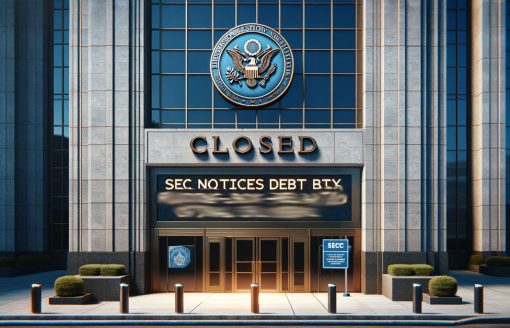The Wall Between Banks and Crypto Has Cracked
In a landmark development that could reshape the financial landscape, U.S. national banks have been officially cleared to offer cryptocurrency custody services. The Office of the Comptroller of the Currency (OCC), a division of the U.S. Treasury, issued a ruling confirming that federally chartered banks and savings associations can now safeguard digital assets on behalf of their clients.
Stay in the know on crypto by frequently visiting Crypto News Today
This decision marks a turning point in the long-evolving relationship between traditional finance and decentralized technology. For years, banks and Bitcoin were seen as natural adversaries. But now, the line is blurring — and quickly.
Understanding Crypto Custody: Why It’s Not Just About Storage
Unlike traditional financial assets, cryptocurrencies operate on a trustless system where users hold their own private keys. While this model works for retail users and early adopters, institutions have long demanded regulated, insured custody solutions that mirror the protections of legacy finance.
CryptoCaster Quick Check:
Crypto custody involves the safekeeping of private keys, and by extension, the assets they control. The OCC’s ruling gives banks permission to act as digital vaults, offering services like cold storage, insurance coverage, transaction verification, and compliance support — all under federal oversight.
The OCC’s Statement: A New Mandate for Modern Finance
The OCC’s formal communication stressed that custody is simply a digital extension of the traditional role banks have played for centuries — safeguarding assets.
“From gold bars to bearer bonds, and now to private keys — banks have always played a critical custodial role,” the OCC wrote. “Digital assets are a logical evolution.”
This guidance not only legitimizes the involvement of banks in the crypto space but opens the door for more innovation, such as staking services, NFT storage, and tokenized asset portfolios.

Why This Matters Now: Institutional Appetite Is Surging
Institutional interest in digital assets is no longer speculative — it’s strategic. From hedge funds to corporate treasuries, the demand for Bitcoin, Ethereum, and stablecoins has never been higher.
Until now, this demand was often bottlenecked by custody risk. Banks entering the picture changes that dramatically.
A regulated bank offering crypto custody means:
- Compliance confidence for large clients
- Easier integration with existing banking services
- Reduced operational risk for fund managers
This unlocks billions in sidelined capital, waiting for a safe entry point into the crypto economy.
Winners and Losers in the Custody Race
✅ Winners:
- Large U.S. Banks: JPMorgan, BNY Mellon, and Citibank can now tap into a fast-growing crypto custody market, estimated to reach $10 billion+ in revenue by 2030.
- Crypto-native custody platforms: Partnerships and acquisitions are likely, accelerating infrastructure growth.
- Institutional investors: They now have access to federally insured custody — a key missing link in prior years.
❌ Losers:
- Unregulated wallet providers and offshore custodians who now face trust erosion in favor of bank-grade alternatives.
- Countries with unclear crypto policy, as capital may flow toward regulated jurisdictions like the U.S.
Not a Free-for-All: Regulatory Guardrails Still Apply
While the OCC’s ruling is bullish, it does not create a regulatory loophole. Banks offering crypto custody must still comply with:
- Anti-Money Laundering (AML) regulations
- Know Your Customer (KYC) protocols
- Operational risk frameworks to ensure safekeeping integrity
- Capital reserve requirements, where applicable
In other words, custody isn’t a shortcut to unchecked crypto exposure — it’s a structured lane into it.
What’s Next: Tokenized Deposits and Blockchain Banking?
This is only the beginning. With custody approved, banks are now exploring:
- Tokenized versions of fiat deposits, pegged 1:1 and transacted on blockchain rails
- On-chain collateral management, allowing clients to leverage digital assets directly
- Bank-operated validator nodes for staking assets like Ethereum and Solana
We may soon see the convergence of commercial banking with decentralized finance (DeFi), offering the stability of legacy systems with the programmability of Web3.
Industry Voices: A Rare Moment of Alignment
Interestingly, this decision has found cautious praise across the financial spectrum.
“The signal is clear: crypto is not fringe anymore,” said a fintech compliance officer in a recent interview. “The OCC just gave banks the green light to build serious infrastructure — and institutional clients will follow.”
Crypto advocates, though often skeptical of centralized banking, acknowledge that regulated access points increase adoption and reduce friction for onboarding the next wave of users.
Conclusion: The Future of Custody Is Here
The OCC’s ruling doesn’t just permit custody — it validates crypto’s place in the future of banking. With the U.S. now formally allowing banks to safeguard digital assets, the global financial chessboard is shifting.
Crypto’s migration from backroom tech to boardroom agenda is no longer theoretical — it’s policy.
For digital asset investors, fintech leaders, and banking giants alike, one truth is now clear:
The custody arms race has officially begun.
🔔 Subscribe to Cryptocaster for weekly insights on blockchain breakthroughs, digital wealth migration, and the regulation shaping tomorrow’s financial world.
If this article brought you clarity, insight, or value—support the work that made it possible.
At CryptoCaster, we report on Web3, crypto markets, and institutional finance with no billionaire owners, no shareholders, and no hidden agenda. While mainstream media bends toward Elon Musk, BlackRock, and JPMorgan narratives, we stay focused on what matters: truth, transparency, and the public interest.
We don’t just cover the headlines—we investigate the power structures behind them. From FTX and Ripple to the quiet push for CBDCs, we bring fearless reporting that isn’t filtered by corporate interests.
CryptoCaster is 100% paywall-free. Always has been. To keep it that way, we depend on readers like you.
If you believe independent crypto journalism matters, please contribute—starting at just $1 in Bitcoin or Ether. Wallet addresses are below.
Your support keeps us free, bold, and accountable to no one but you.
Thank you,
Kristin Steinbeck
Editor, CryptoCaster
Support CryptoCaster: The Unfolding of Money
At CryptoCaster.world, we’re dedicated to bold journalism, sharp insights, and fearless commentary across blockchain, Web3, and crypto markets. Your **Bitcoin contributions** help us stay independent and continue delivering signal over noise.
🚨 CryptoCaster does not offer investment advice. Always DYOR—volatility is real, and risk tolerance matters.
Support our mission. Contribute BTC today.
🔗 Bitcoin Address:
3NM7AAdxxaJ7jUhZ2nyfgcheWkrquvCzRm
Thank you for backing our journalistic lens as we chronicle the Unfolding of Money — a saga still being written in real time.![]()
CRYPTOCASTER HEATMAP







